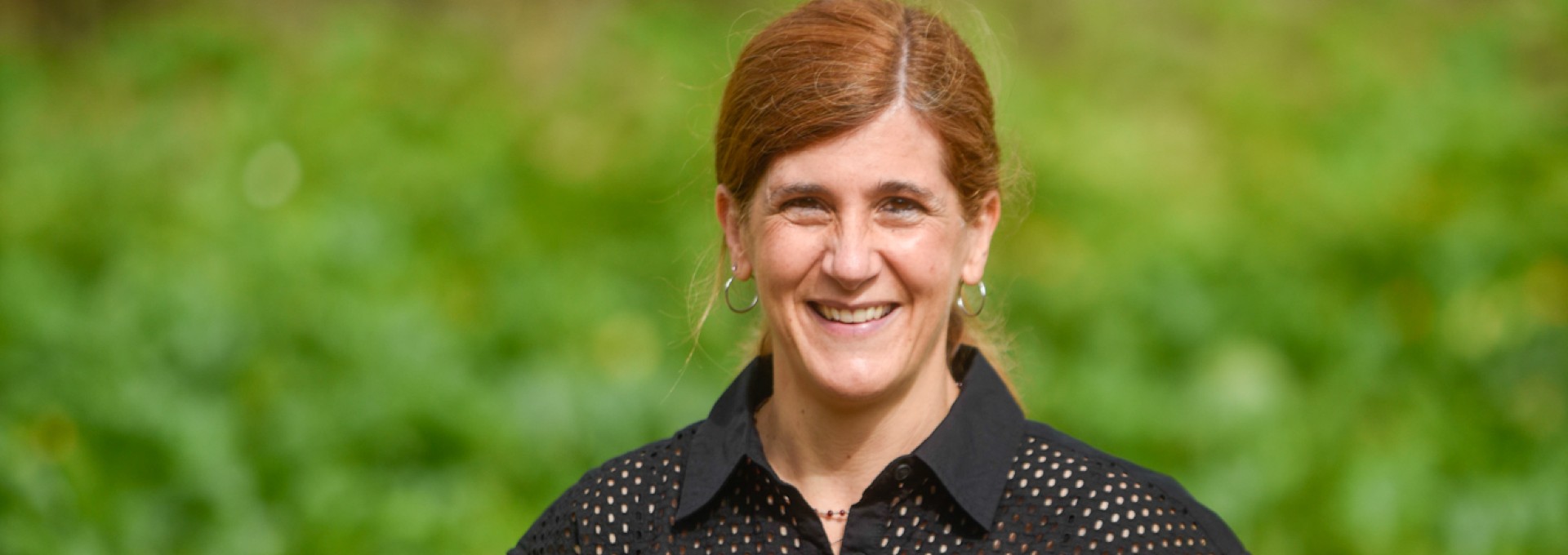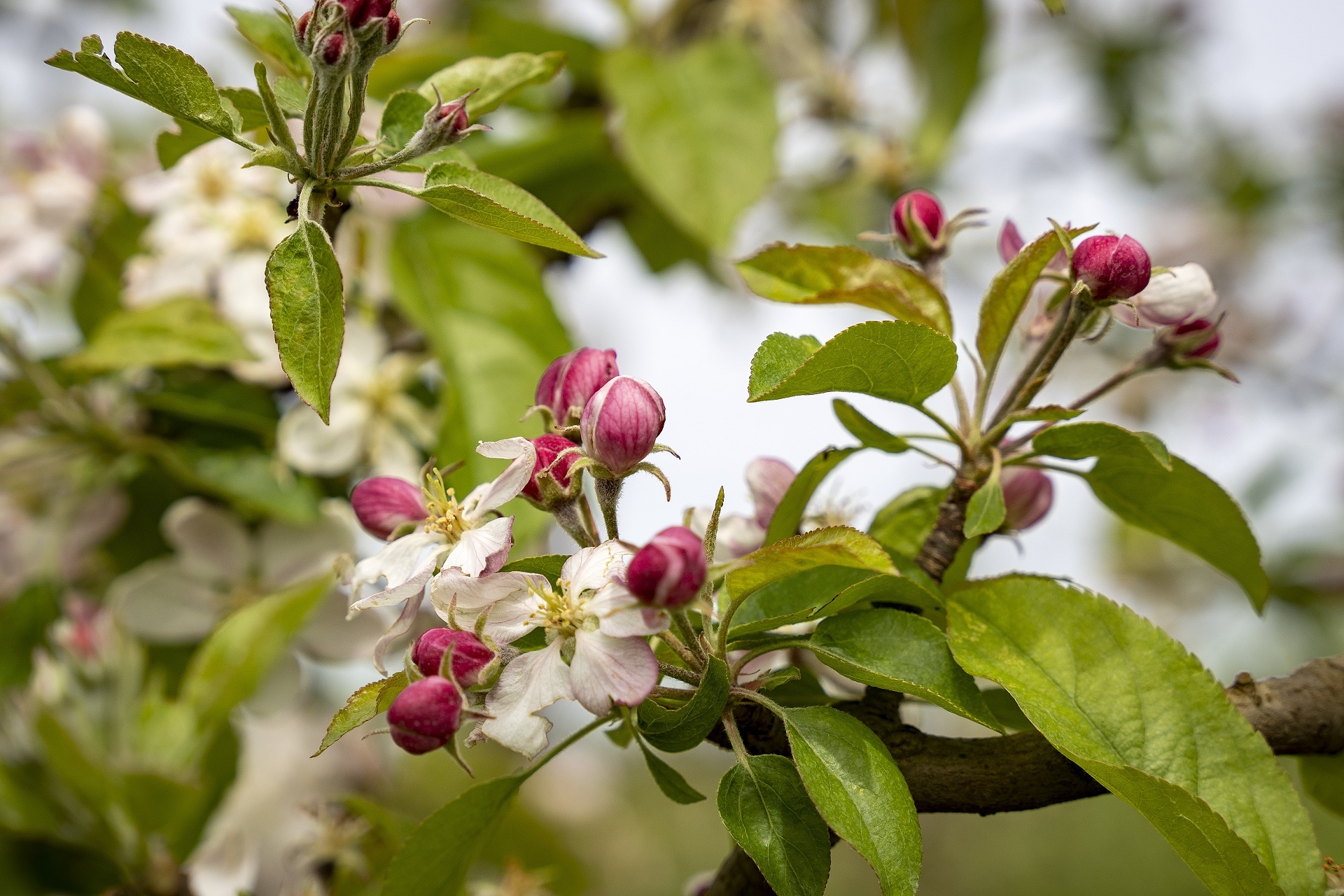Coinciding with International Human Rights Day, we begin a series of conversations with individuals who are currently working to rebuild a more just, secure, sustainable, and healthy agri-food system in our region. And we do so by talking with Sònia Callau i Berenguer, head of the Agricultural Spaces Support Unit at the Barcelona Provincial Council and coordinator of the European project BCN Smart Rural
The first question is obligatory: do you think it is possible to guarantee the universal right to food or does it seem more like a chimera?
And so much that it is possible! If it were unworkable, the international community would not have devoted so much effort to recognize this right. However, not all countries control the resources and means necessary to ensure sufficient food production for their population. At present, only the major world powers are acquiring land around the world to ensure their future food sovereignty and do not want to depend on importing food from all over the world, especially those that are essential.
So what's the problem? If the universal right to food is an internationally recognized right, why is so little importance given to the loss of agricultural land? If the land is the basis for being able to produce food, why can no one prevent it?
The answer to this question has many nuances and can depend on very different factors. But my view is that governments will be closer to being able to guarantee access to healthy, wholesome and resilient food the day they, on the one hand, regain sovereignty over their food resources and, on the other hand, abandon business strategies that are disastrous for food security. From an agricultural point of view, export-oriented policies are particularly harmful, displacing peasants and destroying family and small-scale agriculture, not to mention their enormous environmental cost.
"From an agricultural point of view, export-oriented policies are particularly harmful, as they displace peasants and destroy family and small-scale agriculture, not to mention their enormous environmental cost" Sònia Callau
How can food sovereignty be recovered? Is there an international body that gives clear guidelines?
The Food and Agriculture Organization of the United Nations (FAO) is the world's reference institution in these matters and has not only been defending the universal right to food for many years but that the year 2005 published Voluntary Guidelines that can be followed by all those states that want to achieve the right to adequate food. In addition, ten years later, he created an agroecology division that placed at the centre of the political agenda the importance of family and local agriculture to end hunger, improve the nutrition of the population and achieve food safety Well worth a look.
Of specific references, how are we doing? What are the projects that, in your opinion, represent a good starting point for the establishment of a new agri-food model?
Globally, cities such as Toronto, London, Amsterdam, Malmö, Rennes, Vancouver and New York have begun to incorporate the food strategy into their urban agenda, a move that represents a clear break with the past, when food systems were 'left to market forces (in private hands, by the way) and it was considered that public administrations could not and should not intervene. Instead, now, many experts agree to point out that a true food policy must include the management of the productive space, the distribution of local food to citizens and food governance. In the opinion of these specialists, it is very clear that the agricultural space must cease to be only a physical space and become an integral part of the urban-rural metabolism; that is to say, the city cannot do without its agricultural space and the agricultural space must reconnect with the city. In this sense, to properly plan food policies, it is necessary to order and manage the agricultural territory in such a way that the agricultural space becomes an essential part of the city.
"It is necessary to organize and manage the agricultural territory so that the agricultural space becomes an essential part of the city" Sònia Callau
At the level of the demarcation of Barcelona, what would be the models that paved the way for the Montserrat Rural Park, the Baixa Tordera Agrarian Space or the BCN Smart Rural strategy, three of the projects that you lead from the Territorial Agrarian Directorate of the Provincial Council of Barcelona?
I would say that the Sabadell and Baix Llobregat agricultural parks are the two areas of reference in the territory at a historical level, since their implementation, there in 1998, was based on hypotheses that could seem surprising and even utopian at that time. Looking for new protection, planning and management figures for these pioneering spaces, the people who worked on their development asked ourselves daily why we could not consider peri-urban agriculture as an urban planning tool capable of sustainably organizing the territory that it surrounds cities rather than trying to curb the uncontrolled growth of cities through green belts. Finding new ways to integrate the urban fabric with agricultural and forest spaces was causing many of us to lose sleep!
What lessons did you take away from these experiences? What do you think is the best way to manage the food system from the local world?
I believe that enjoying shared governance between the rural and urban worlds is a coherent way of intervening on a local scale. In addition, it is necessary to establish a true food policy that includes the preservation and management of agricultural spaces, the transformation and distribution of food at the local level, and the inclusion of citizens in decision-making about the present and future of the agri-food sector in their population
After this review of fundamental references, where would you place the BCN Smart Rural? Do you see it as a continuation or rather as a disruptive agricultural development project?
I would say both. To a large extent, the BCN Smart Rural is the result of a journey of more than twenty years in the preservation, management and revitalization of agricultural areas. But it is also based on the conviction that agricultural and food policies are necessary from the moment a government not only recognizes food as a citizen's right but also firmly commits to guaranteeing this universal right. And making the transition from words to action is quite a challenge.
"Agrarian policies are necessary from the moment a government not only recognizes food as a citizen's right, but is also firmly committed to guaranteeing this universal right" Sònia Callau
What do you want to achieve with BCN Smart Rural? What is the main objective of the project on food governance issues?
The BCN Smart Rural project promotes agri-food policies aimed at promoting an intelligent relationship between the countryside and the city. In this sense, its purpose is twofold, since on the one hand it wants to help citizens enjoy healthy, sustainable and local food and, on the other hand, it wants to contribute to farmers being able to have the resources and services necessary to make it possible.
"The BCN Smart Rural project promotes agri-food policies aimed at promoting an intelligent relationship between the countryside and the city" Sònia Callau
Finally, who endorses the project? What political and economic support does BCN Smart Rural have?
The BCN Smart Rural is a Territorial Specialization and Competitiveness Project that is led by the Provincial Council of Barcelona in collaboration with two partners: the Forestry Technology Center of Catalonia and the Association of Rural Initiatives of Catalonia. But, in addition, it has the support of consortia and economic development agencies that work in the territory; specifically, the Association for the Rural Development of Central Catalonia, the Lluçanès Consortium, the Association for the Integral Rural Development of the north-eastern area of Catalonia, the Association for the management of the Leader Ripollès-Ges-Bisaura program, Consortium for the Development of Central Catalonia, the Regional Council of Moianès, the Forest Ownership Center of Catalonia (CPFC), the Biomass Cluster of Catalonia and the Catalan Federation of Forest Owners' Associations. That is to say, we are very well accompanied!
In terms of money, the project is co-financed by the Diputació de Barcelona and the European Union through its FEDER funds and has a budget of nearly three million euros.
At a temporary level, the project will be developed until 2022 in the area of the demarcation of non-metropolitan Barcelona, an area that covers a total of 565,975 hectares... I hope I haven't left out any important data! In any case, I would like to say goodbye by remembering the motivation that unites the people who are promoting this project: we all want to contribute to the establishment of an agri-food model that allows us to enjoy, now and in the future, healthy food, sustainable, nutritious and delicious. This is what drives us!
— Redaction BCN Smart Rural —



